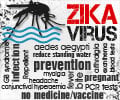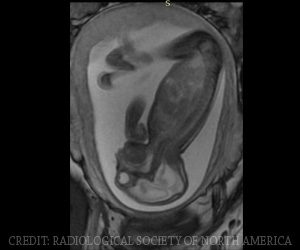- The blood samples of people infected with Zika virus reveal certain antibodies or proteins that are produced by the immune system.
- These antibodies that also include one called Z004 neutralize the virus and block it from initiating an infection.
- The interaction between this antibody and the virus reveals a new potential strategy for developing a vaccine.
A particular antibody known as Z004 was found to be effective in neutralizing Zika.
"These antibodies could be very useful in the near future. One could envision, for example, administering Z004 to safely prevent Zika among pregnant women or others at risk of contracting the disease," says Davide F. Robbiani, a research associate professor in Michel Nussenzweig's lab.
Zika
Zika is a vector-borne (mosquito) infection that is transmitted by the Aedes aegypti mosquito.It usually causes mild symptoms in those who contract it. The symptoms include fever, rash, conjunctivitis, muscle and joint pain that resolve rapidly.
But in pregnant women, it can lead to severe consequences in the offspring, increasing the risk of devastating neurodevelopmental abnormalities like microcephaly and Guillain-Barré syndrome.
Within the host, the virus travels in a spherical particle studded with the viral envelope protein and the infection is triggered when this protein latches onto a host cell and forces its way in. The human immune system responds to this viral threat by generating antibodies that prevent the virus from invasion.
Study
For the study, blood samples from more than 400 people were collected through collaborators working in Pau da Lima, Brazil, and Santa Maria Mixtequilla, and Mexico.The response to the virus can vary between individuals.
A deeper analysis of samples from 6 of the volunteers with promising antibodies revealed that 5 of them had the same species of nearly identical antibodies.
This showed that these molecules were particularly good at fighting the virus.
One antibody, Z004, from a Mexican volunteer's blood, was found to prevent serious infection when administered to mice that were vulnerable to Zika.
A Common Ridge
A molecular structure was formed as a result of interaction between the antibody and a fragment of the virus' envelope protein. The antibody pinches a ridge on the virus as it binds to it.While some vaccines are developed using most parts of a virus to stimulate the immune system, it was found that it is safer to use a tiny fragment containing this ridge.
Viruses belonging to the same family called Flavivirus, like the dengue virus, also have a ridge similar to Zika. When the antibody Z004 was used against dengue, it helped in neutralizing the virus and preventing the infection.
This explains why the immune system performed better in some people who had a prior infection with dengue.
"Even before Zika, their blood samples likely had antibodies that could interact with this same spot on the envelope protein," says Margaret R. MacDonald, a research associate professor in Charles M.Rice's lab. "It appears that, much like a vaccine, dengue 1 can prime the immune system to respond to Zika."
The findings appear in the journal Cell.
References:
- Davide F. Robbiani et al. Recurrent Potent Human Neutralizing Antibodies to Zika Virus in Brazil and Mexico. Cell; (2017) doi.org/10.1016/j.cell.2017.04.024
- Zika virus - (http://www.who.int/mediacentre/factsheets/zika/en/)
Source-Medindia












